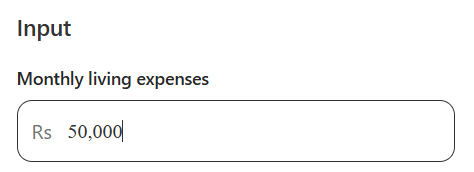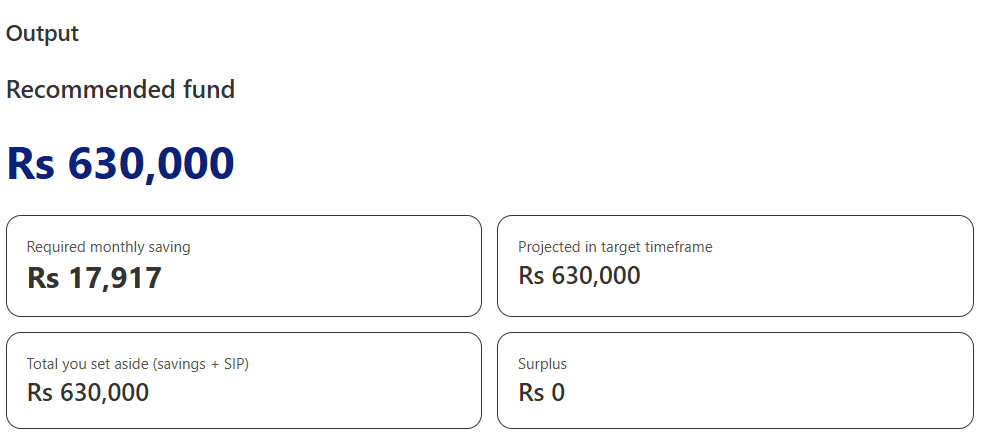Financial shocks often come unannounced, a sudden medical emergency, job loss, or even a car breakdown can disrupt your entire budget. For most households, where income barely covers monthly essentials, such unexpected expenses can quickly spiral into stress and borrowing. Add to that the constant uncertainty of inflation and rising living costs, and you start to see why so many people struggle to stay financially stable. In times like these, having an emergency fund isn’t just thoughtful planning, it’s financial survival.
An emergency fund acts as your financial cushion, money that’s easily accessible when life takes an unexpected turn. It keeps you from dipping into your long-term savings or taking high-interest loans when emergencies arise. Think of it as your first line of defence against uncertainty. Whether it’s covering rent after a job loss, paying a medical bill, or managing sudden family expenses, this fund gives you breathing space to recover without losing your balance.
In a country where job security can fluctuate, inflation swings sharply, and medical costs are often out-of-pocket, building an emergency fund is one of the most practical things you can do for your financial well-being. It doesn’t need to be built overnight, you can start small and grow it gradually.
Our Emergency Fund Calculator helps you do precisely that. By entering your monthly expenses, desired coverage period, and safety buffer, you can see precisely how much you need to save and how long it’ll take. Instead of guessing, you’ll have a clear, personalised plan to stay financially ready for whatever life throws your way.
An Emergency Fund Calculator helps you figure out how much money you need to set aside for life’s unexpected expenses, things like job loss, medical emergencies, or urgent home repairs. Instead of guessing, the calculator gives you a clear savings target based on your monthly expenses, the number of months you want to cover, and a small safety buffer for inflation or cost spikes.
By entering just a few details, your average monthly spending, how long you want your fund to last, and any savings you’ve already built, it instantly shows you the total emergency fund amount and how long it’ll take to reach it if you save regularly. This makes it easy to plan without spreadsheets or guesswork.
Let’s say you’re a single person living in Karachi with average monthly expenses of Rs 50,000. You want to build an emergency fund that covers 12 months of your living costs, with a 5% buffer for unexpected expenses. You haven’t saved anything yet, and you plan to build your fund gradually over 24 months.
Here’s what the Emergency Fund Calculator shows:
This means if you consistently save Rs 26,250 per month for the next two years, you’ll have a full year’s worth of expenses (plus a small safety margin) ready to protect you in case of job loss, medical emergencies, or any unexpected financial hit.

Now, let’s take a family scenario, a couple living in Lahore with two kids. Their total monthly living expenses, including rent, groceries, transport, and school fees, come to Rs 150,000. They want to build an emergency fund covering 6 months of expenses, with a 10% safety buffer for unexpected costs. They already have Rs 200,000 saved, and plan to build the full fund gradually over 48 months.
Here’s what the Emergency Fund Calculator shows:
This means that by saving Rs 16,458 each month for the next four years, the couple can build a safety net close to Rs 1 million, enough to cover six months of family expenses and safeguard them from job loss, medical emergencies, or sudden income disruption.

The Emergency Fund Calculator helps you figure out how much money you need to stay financially secure during tough times, like a job loss, medical emergency, or any unexpected expense. Here’s how you can use it step by step:
Start by adding your total monthly spending, rent, groceries, utilities, transportation, school fees, or other essentials.

Decide how many months of expenses you want your emergency fund to cover. Most experts recommend 3 to 12 months, depending on your job stability and income source.

Include a small buffer to cover inflation or sudden price changes. Usually, 5-10% is enough.

If you’ve already set aside some money for emergencies, include it here so the calculator adjusts your target.

Choose how long you want to take to build your emergency fund fully.

You’ll instantly see:

An emergency fund isn’t just for worst-case scenarios; it’s what keeps your life stable when things don’t go as planned. In Pakistan, where income can be unpredictable and inflation often eats into savings, having a cash buffer means peace of mind.
Here’s why it matters:
Simply put, your emergency fund acts as a financial seatbelt. You may not think about it every day, but when life suddenly breaks, it’s what keeps you safe.
Building an emergency fund isn’t about fear, it’s about freedom. When you know your essentials are covered, you can make better financial decisions without stress or pressure. Whether you’re a student just starting, a couple managing a household, or a parent planning for family stability, your emergency fund is the foundation that supports every other financial goal.
With the Harvest Emergency Fund Calculator, you can stop guessing and start planning. It gives you a clear picture of how much you need, how long it’ll take, and what steps to follow, all within minutes.
Use the Harvest Emergency Fund Calculator to see exactly how much you need for life’s unexpected moments.
Start investing through the Harvest app in low-risk mutual funds, a more innovative way to grow your emergency savings while keeping them liquid and accessible.
Think of it like a savings account, but with better returns.
Start now with Harvest MFD.